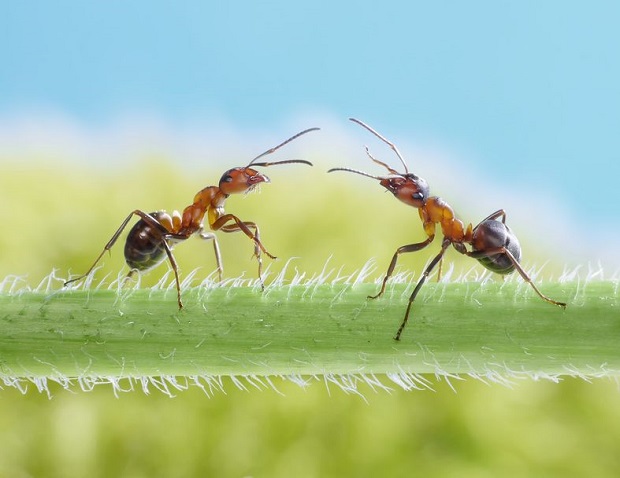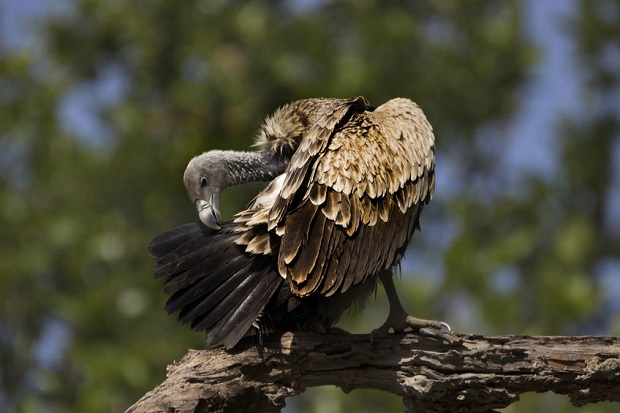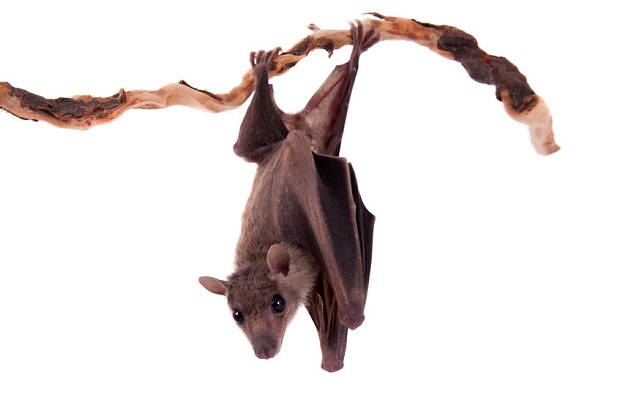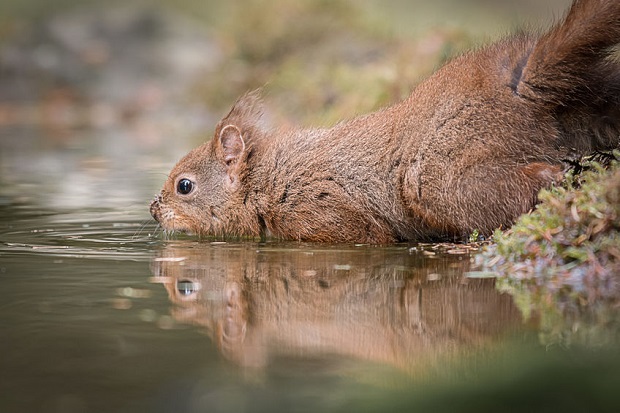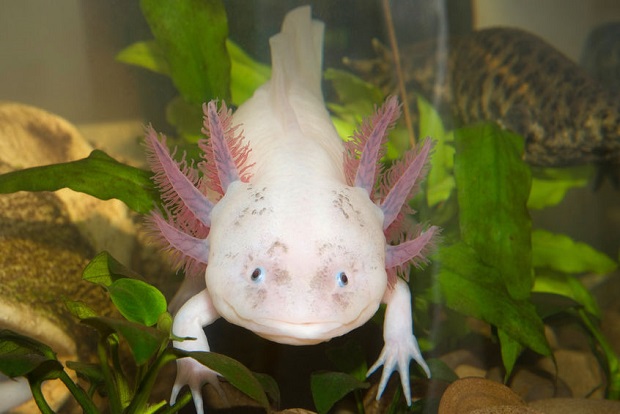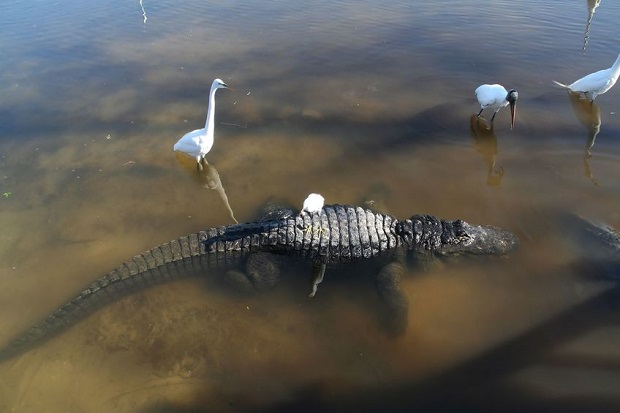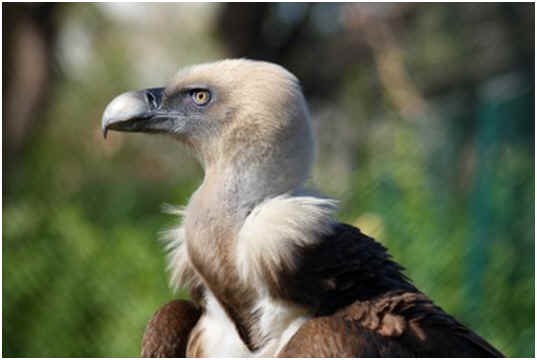
Are Vultures and Buzzards the Same? Vultures and buzzards are not the same. Though North Americans often refer to vultures as buzzards, this term is incorrect and was likely given by the early settlers that mistook the vulture for the European buzzard. True buzzards are raptors similar to North American hawks. [ “Birds of Prey.” West Virginia University Extension Service]
New World Vultures
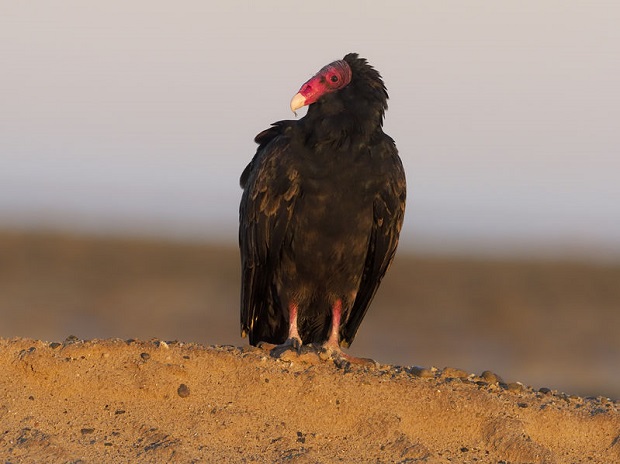
Americans sometimes use the word “buzzard” to describe two vulture species native to the Americas, the turkey vulture and the black vulture. They are part of the condor family, Cathartidae. Both species are primarily scavengers, with brown-black feathers, six-foot wingspans, and bald heads to keep them clean while eating carrion. Both can be found throughout North, Central, and South America; black vultures prefer warm climates, but the turkey vulture ranges from Canada to southern Argentina. Black vultures have gray heads and feet, while turkey vultures have distinctive red-skinned heads.
Old World Vultures
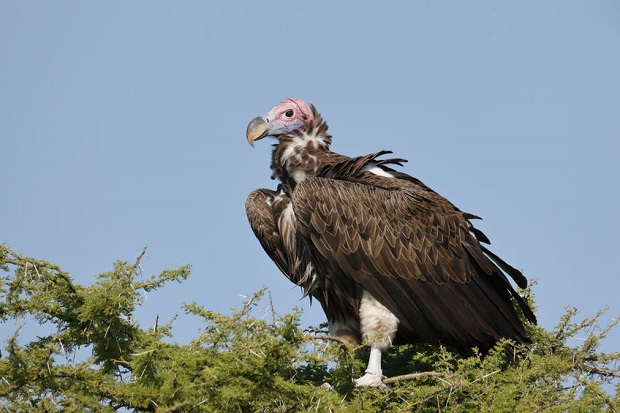
Old World vultures, native to Europe, Asia, and Africa, are not closely related to New World vultures. They are part of the Accipitridae family, like hawks and eagles. Nonetheless, Old World and New World vultures look and behave similarly: they have bald heads, glide through the air, and eat carrion. Old World vultures tend to have broader beaks and larger heads than New World vultures. Like the lappet-faced vulture, some have colorful blue and red skin, while others, like the griffon vulture, are gray and brown.
Buzzards and Hawks
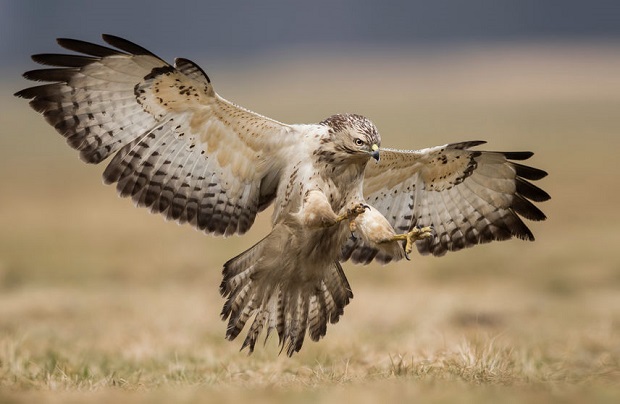
Old World buzzards are also members of the Accipitridae family. Unlike vultures, Old World buzzards are raptors that prefer live prey, especially rodents and lizards. The common buzzard, whose habitat stretches from the British Isles to Japan, has brown feathers, a short beak, and a wingspan of about four feet. Its closest North American relative is the red-tailed hawk.
